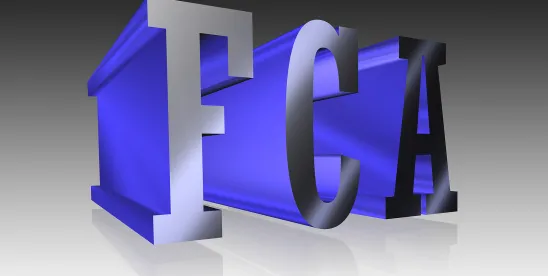Politics
Courts Challenge Constitutionality of False Claims Act Provisions

Recent federal court decisions have reignited scrutiny over the qui tam provisions of the False Claims Act (FCA), which permits private individuals to initiate lawsuits on behalf of the United States. These provisions have long been a vital tool for whistleblowers, particularly in sectors like healthcare and defense contracting. However, a series of rulings have raised significant constitutional questions, prompting calls for a Supreme Court review.
Key Rulings Raise Constitutional Questions
On October 1, 2024, Judge Kathryn Mizelle of the U.S. District Court for the Middle District of Florida determined that the FCA’s qui tam mechanism infringes upon the Appointments Clause of the U.S. Constitution. Her ruling asserts that allowing private citizens to enforce federal law without formal appointment contravenes Article II, which outlines the powers of the executive branch. This decision, part of the case United States ex rel. Zafirov v. Florida Medical Associates, LLC, signals a pivotal shift in judicial interpretation of the FCA.
The implications were further underscored by a recent ruling from the Fifth Circuit, which upheld the dismissal of a qui tam action in United States ex rel. Gentry v. Encompass Health Rehab. Hosp.. In this case, a former sales representative alleged that the hospital submitted fraudulent Medicare claims. The Fifth Circuit agreed with the dismissal, citing a lack of sufficient evidence to support the claims. Notably, Judge James C. Ho concurred but emphasized the need to address “serious constitutional problems” inherent in the FCA’s qui tam provisions.
Potential for Broader Change in FCA Enforcement
The recent decisions highlight a growing judicial willingness to reconsider long-standing precedents regarding the FCA. If the Eleventh Circuit affirms Judge Mizelle’s ruling in Zafirov, the matter may escalate to the Supreme Court, potentially reshaping the landscape of whistleblower-driven enforcement across various industries.
Currently, at least three Supreme Court justices have expressed interest in this constitutional debate. In a previous case, United States ex rel. Polansky v. Executive Health Resources, Inc., Justices Kavanaugh and Barrett raised concerns about the alignment of qui tam provisions with Article II. Their comments, alongside Justice Thomas‘s dissent on similar grounds, offer a compelling backdrop to the current legal discussions.
As these rulings are confined to the parties involved, they primarily impact FCA cases where the government has not intervened. Nonetheless, both defendants and relators should closely monitor the progression of the Zafirov appeal and any subsequent rulings that may adopt or reject its reasoning. The outcome could have profound implications, as the majority of FCA recoveries stem from qui tam actions, potentially affecting the healthcare, defense, and government contracting sectors significantly.
In summary, the evolving judicial landscape surrounding the FCA’s qui tam provisions necessitates attention from all stakeholders involved in regulatory compliance and whistleblower actions. The potential for constitutional reevaluation may herald a new era in enforcement practices, with far-reaching consequences for how such cases are handled in the future.
-

 Science4 weeks ago
Science4 weeks agoInventor Achieves Breakthrough with 2 Billion FPS Laser Video
-

 Health4 weeks ago
Health4 weeks agoCommunity Unites for 7th Annual Into the Light Walk for Mental Health
-

 Top Stories4 weeks ago
Top Stories4 weeks agoCharlie Sheen’s New Romance: ‘Glowing’ with Younger Partner
-

 Entertainment4 weeks ago
Entertainment4 weeks agoDua Lipa Aces GCSE Spanish, Sparks Super Bowl Buzz with Fans
-

 Business4 weeks ago
Business4 weeks agoTyler Technologies Set to Reveal Q3 Earnings on October 22
-

 Entertainment4 weeks ago
Entertainment4 weeks agoMother Fights to Reunite with Children After Kidnapping in New Drama
-

 World4 weeks ago
World4 weeks agoR&B Icon D’Angelo Dies at 51, Leaving Lasting Legacy
-

 Health4 weeks ago
Health4 weeks agoCurium Group, PeptiDream, and PDRadiopharma Launch Key Cancer Trial
-

 Entertainment4 weeks ago
Entertainment4 weeks agoRed Sox’s Bregman to Become Free Agent; Tigers Commit to Skubal
-

 Health4 weeks ago
Health4 weeks agoNorth Carolina’s Biotech Boom: Billions in New Investments
-

 Science4 weeks ago
Science4 weeks agoNorth Carolina’s Biotech Boom: Billions Invested in Manufacturing
-

 Top Stories4 weeks ago
Top Stories4 weeks agoFormer Mozilla CMO Launches AI-Driven Cannabis Cocktail Brand Fast









